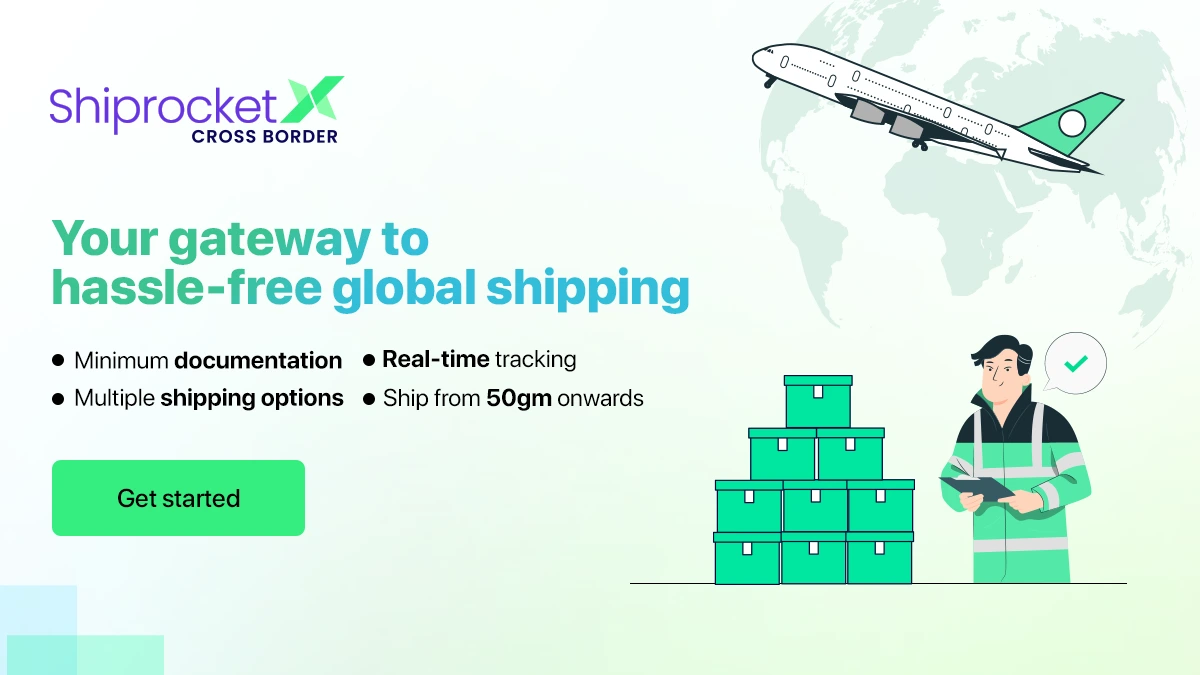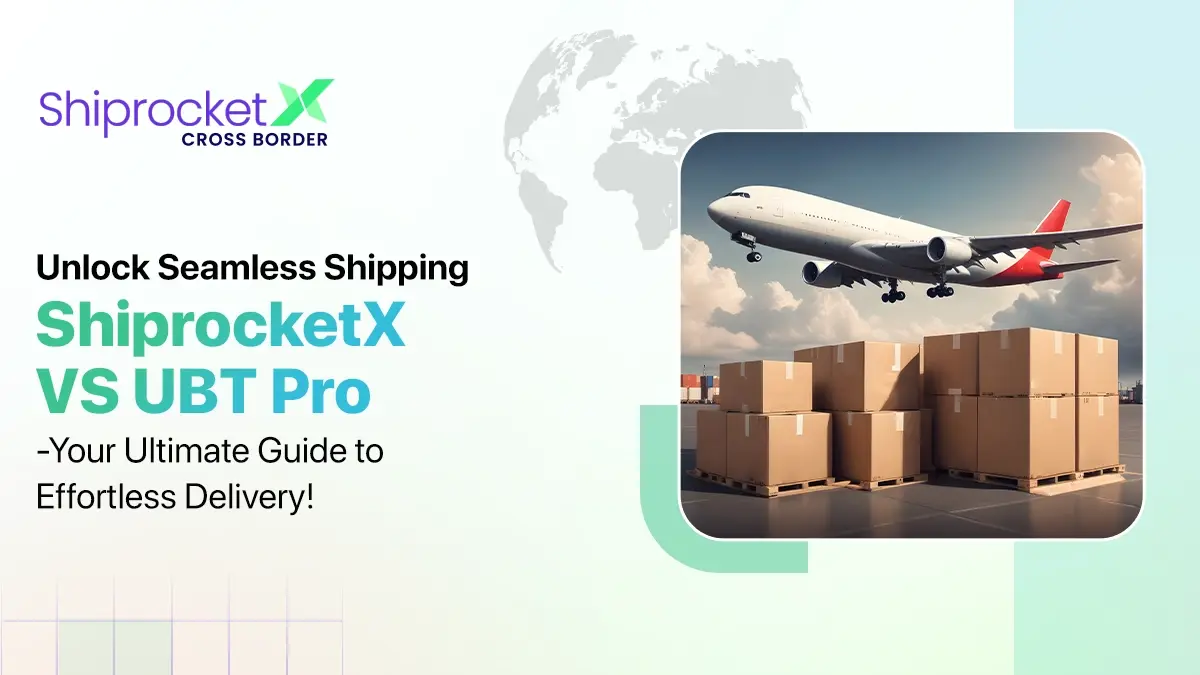Export Duty: Tips for E-commerce Market Shipping Success
Understanding shipping charges and taxes is critical for online retailers. These impact your overseas shipping expenses. They also alter customer experiences. Although complicated at first glance, shipping tariffs and taxes are the most significant aspect of cross-border shipping.
Due to the increased complexity of international delivery, many eCommerce firms do not provide cross-border shipping. One of the reasons firms hesitate is that they have to pay export duties.
Export duties raise the cost of international transportation. Further, managing them requires a high volume of documentation and advanced skill sets.
Therefore, businesses and eCommerce companies must be familiar with the export duties placed on the shipment. Below is all you need to know about the export duties.

What is Export Duty?
Collected by customs officials, It is a tax levied on products exported from a country.
For an e-commerce firm seeking to ship to new countries, it’s critical to understand the taxes that will apply to the shipments. After all, these additional charges might have an impact on your business.
Export duties affect your business in the following ways:
Finances
If your organisation is responsible for paying duties and taxes, this will influence your profit margin. It may also increase the price of items for your customers, thus slowing your sales rate.
Logistics
Unpaid tariffs and taxes might create a customs delay, slowing your delivery time.
Customer
If your consumer is responsible for paying any duties or taxes, they must realise this in advance. It would help to state the necessary information on your website and at the checkout.
Payment of Export Duties
As an e-commerce seller, you have the authority to choose who is liable for paying customs and taxes on a shipment. Choosing and writing the Incoterms on your commercial invoice is one way to do it.
Incoterms or ‘International Commercial Terms’ specify whether the sender or recipient is responsible for customs and taxes. Without a doubt, communicating this to consumers is vital.
There are several Incoterms to select from. The one you choose is determined by what you offer, where you ship, and the size of your firm.
For e-commerce companies, the options are primarily two:
DDP Incoterms: Duties and Taxes are Paid by the Seller
- When using DDP Incoterms®, the seller/sender is responsible for paying all duties and fees in the destination country.
- You may accomplish this in the following ways:
- Pay on your own.
- Charge the duties and taxes to your consumer at the time of purchase.
- These are paid directly to customs by you or your carrier.
- If your carrier pays on your behalf, they will usually charge you a processing fee. Hence, remember to include your carrier account number on the airway bill.
DAP Incoterms: Duties and Taxes are Paid by the Customer
- If you utilise DAP (Delivered at Place, formerly known as DDU, Delivered Duty Unpaid) Incoterms, the buyer would be obliged to pay customs duties and taxes.
- A disclaimer should inform customers about this in advance, often during the checkout process.
- It is advantageous to repeat the same content on different pages of your website.
- If your recipient is responsible for paying duties and taxes, the customs department will contact them immediately.
- For low-value cargo, the carrier may pay customs duties beforehand and then invoice them to the receiver, often with additional processing or advance payment fees.
The sender is alerted and requested to repay the charges if the receiver fails to pay. If neither party pays, the products may be returned to the sender or destroyed by customs. As a result, informing clients of any prospective charges ahead of time is critical.
Unspecified Accountability
The duties and taxes will be levied to the recipient if there are no Incoterms on the shipment papers.

Reasons why Governments Impose Export Duties
Export duties can be merely economic or part of a broader global agenda. Some of the reasons why governments impose export duties are as follows:
Revenue Generation
Export duties are a significant source of revenue for many countries. They take a cut on every export, thus receiving a share of trade earnings.
Protect National Industries Against Global Competition
Export duties on some items hinder exports, protecting domestic manufacturers from global competition.
Control the Flow of Certain Goods
By imposing proper export duties, the government seeks to control the flow of specific goods and commodities.
GST for exporters
Before the advent of GST, charges were also levied on the export of goods and services. According to the new tax structure, exporting products and services from India to any other country outside India is classified as ‘Zero Rated Supplies.’
It means that exporters will not be subject to GST. Registered taxable citizens who export products or services to locations outside the nation are eligible for a refund.
Which Products have the Maximum Export Duty?
Different products have different rates of export duty levied on them based on their type.
The following is a list of commodities with the maximum export duty rate levied on them.
| Item | Export Duty |
|---|---|
| Footwears | 20 |
| Jewellery articles and their parts | 15 |
| Air conditioners | 10 |
| Sink, shower bath, bath, wash basin, etc., made of plastic | 10 |
| Household refrigerators | 10 |
| Miscellaneous plastic articles like furniture fittings, office stationery, statuettes, decorative sheets, bangles, beads, etc. | 10 |
| Plastic articles for packing and conveyance like bottles, containers, cases, insulated wares, etc. | 10 |
| Radial car tyres | 10 |
| Tableware, household plastic items, kitchenware | 10 |
| Executive cases, suitcases, trunks, travel bags, briefcases, other bags, etc. | 10 |
| Speakers | 10 |
| Washing machines weighing less than 10kg | 10 |
| Compressors for air conditioners and refrigerators | 7.5 |
| Coloured gemstones that are cut and polished | 5 |
| Diamonds which are semi-processed, broken or half-cut | 5 |
| Diamonds that are lab grown | 5 |
| Aviation turbine fuel | 0 |
Final Thoughts
If your e-commerce firm wants to start exporting overseas, you’ll need knowledge of import tariffs, customs laws, and other potential expenses.
Working with a shipping partner like Shiprocket X helps you deliver overseas quickly and effectively, regardless of the country you are exporting to. It has facilities all around the world, with technologies to enable you to ship your products anywhere with ease.









